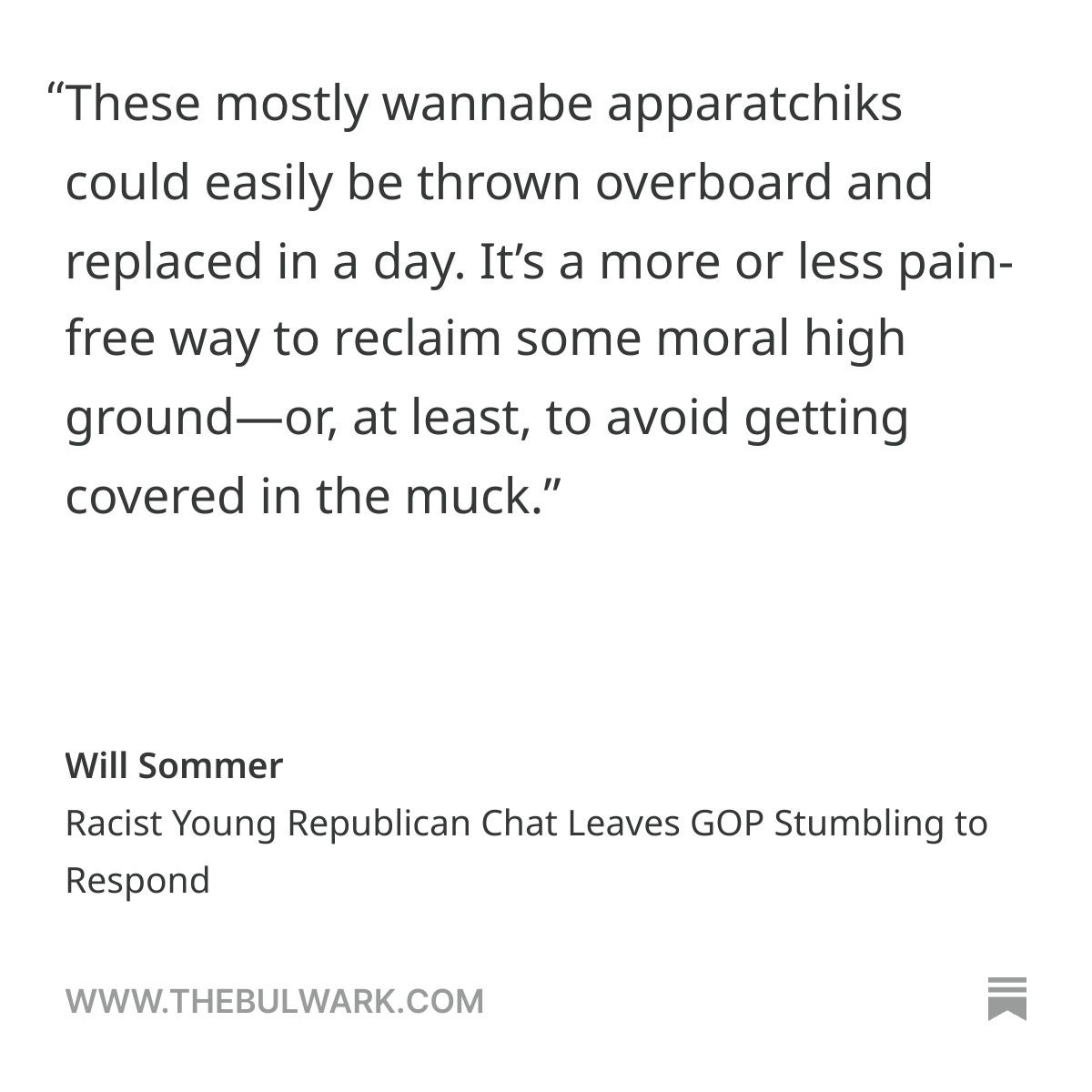The limits of conservative unity
I am not willing to be unified with genuinely bad actors. There is a point where principles and personal character are more important than "unity."
When the news of the Young Republican group chat emerged, with a bunch of twenty-somethings engaged in “edgy” jokes and remarks, something about the demand to denounce them did not sit well with me. In trying to make the case for denouncing them, The Bulwark clarified my thinking:
It’s a more or less pain-free way to reclaim some moral high ground—or, at least, to avoid getting covered in the muck.
The fact that denouncing these people for what they said in a private chat is “pain free” is exactly the reason you should not do it. If you are not willing to criticize President Trump or other high-level Republicans for their language, you are not claiming any kind of “moral high ground” by condemning a bunch of people who are low-level staffers or trying to get into a political career. You are punching way beneath your weight class. If taking a stand on principle means anything at all, then you should risk pushback by doing it.
This led to a much broader debate on the Right about unity in the conservative movement, and how we should not focus our fire on “our side” when we need to defeat the Left. And no, we should not immediately denounce someone just because a chorus of online voices and the U.S. Senate Minority Leader (speaking of punching down) demands you denounce it.
But here’s the thing: I am not willing to be unified with genuinely bad actors. I am not on the same team as neo-Nazis who blame “THE JOOOOOOS” for every single thing wrong with the world. If someone is genuinely a neo-Nazi, we are not on the same team, no matter how vigorously that person might support President Trump. (Who, by the way, has Jewish grandchildren and is a fervent supporter of Israel.) I simply do not care what Leftists do or say, and I do not care about arguments that Leftists are supposedly “worse.” Neo-Nazis are not and never will be my allies.
We do need to be wary of demands to “denounce” this person or that person, and that is especially true for influential pundits or political leaders who have far more influence than the person they are denouncing. But if the conservative movement means anything at all, there have to be people who are not welcome in the movement. The conservative movement needs to be about conservative principles. We are not going to perfectly agree on all of those principles or the correct strategy to accomplish conservative goals, but we need to have some guardrails. If the “big tent” does not have any sidewalls, then it is not a tent at all.


